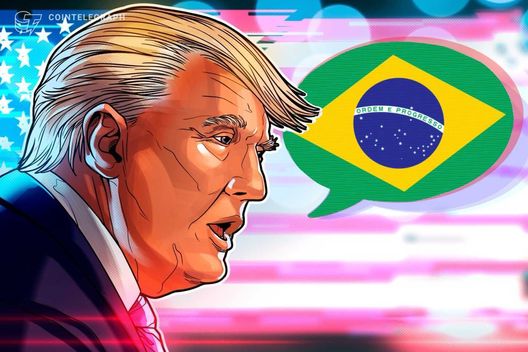

The United States has initiated a formal investigation into Brazil's trade practices, with a particular focus on the country's digital payment system, Pix. This probe, announced by U.S. Trade Representative Jamieson Greer on Tuesday, will assess whether Brazil's digital and trade policies unfairly disadvantage American companies.
Several aspects of Brazil's policies are under scrutiny. The investigation will examine Brazil's "tariff and non-tariff barriers," with claims that the country offers preferential treatment to other trade partners while putting U.S. exporters at a disadvantage. The USTR is also concerned about Brazil's alleged penalization of American tech firms that do not comply with censorship demands related to political speech. The investigation aims to determine whether Brazil's actions are "unreasonable or discriminatory" and whether they "burden or restrict" American commerce.
Pix, the instant payment system launched by Brazil's Central Bank in 2020, is a key focal point of the U.S. investigation. Pix allows users to send and receive money instantly, 24/7, at minimal or no cost. It has gained widespread adoption, with over 150 million users and acceptance at more than 60 million businesses. The USTR is concerned that Pix, being government-run and free, creates barriers for American companies like Visa and Mastercard. The USTR suggests that the Brazilian system advantages its government-developed electronic payment services. This could be viewed as a deliberate government intervention to exclude foreign competitors or impose requirements that restrict the entry of American players, favoring the domestic market.
The investigation also encompasses concerns regarding intellectual property protection, ethanol market access, and deforestation. The USTR has accused Brazil of disadvantaging American exports by offering lower tariffs to certain trade partners, failing to protect American intellectual property rights, and backtracking on earlier commitments to grant duty-free access for U.S. ethanol.
This investigation marks an escalation in tensions between the two countries. President Trump had previously called on Brazilian authorities to drop the prosecution of former President Jair Bolsonaro and threatened a 50% tariff on Brazilian imports starting August 1. Brazil's President Luiz Inácio Lula da Silva said Brazil would match the 50% levy.
The USTR must seek consultations with Brazil regarding the investigation and has requested these consultations. A hearing is scheduled for September 3, 2025, and interested parties can submit written comments and requests to appear at the hearing by August 18, 2025. If the allegations are confirmed, Washington could impose tariffs of up to 50% on Brazilian products starting in August.